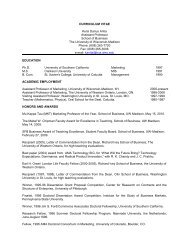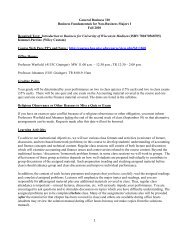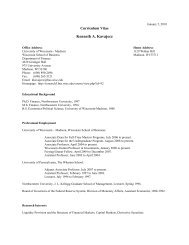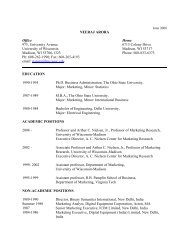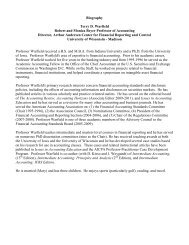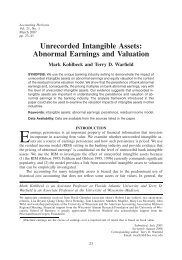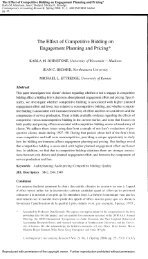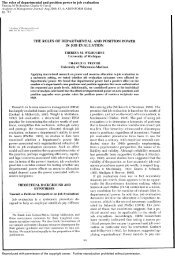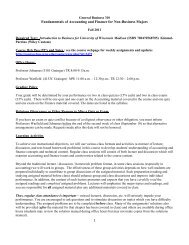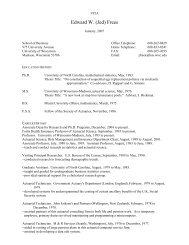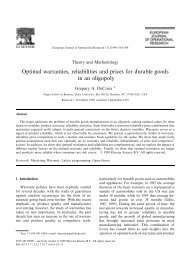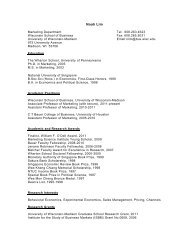family legacies - Wisconsin School of Business - University of ...
family legacies - Wisconsin School of Business - University of ...
family legacies - Wisconsin School of Business - University of ...
Create successful ePaper yourself
Turn your PDF publications into a flip-book with our unique Google optimized e-Paper software.
Family Legacies<br />
<strong>family</strong> stories about ourselves are passed along to us without special regard for whether we want<br />
them or not” (p. 195). Collectively then, <strong>legacies</strong> can be viewed by <strong>family</strong> members as blessings<br />
and/or curses. Some <strong>legacies</strong> enable, while others constrain the identity <strong>of</strong> the <strong>family</strong> as well as<br />
its individual members (Androutsopoulou, 2001; Langellier & Peterson, 2006). Because <strong>family</strong><br />
<strong>legacies</strong> can have both a positive and negative impact on <strong>family</strong> and individual identity, we<br />
examined how intergenerational stories affect and reflect individual <strong>family</strong> members’ sense <strong>of</strong><br />
their <strong>family</strong> <strong>legacies</strong> as both enabling and constraining to their own identities. Thus, we first<br />
sought to identify positive and negative <strong>legacies</strong> reported by third generation <strong>family</strong> members<br />
from their respective families:<br />
RQ1: What do third generation <strong>family</strong> members identify as positive and negative<br />
intergenerational <strong>family</strong> <strong>legacies</strong>?<br />
Embracing, Rejecting, and Extending Legacies<br />
In addition to analyzing the content <strong>of</strong> <strong>family</strong> <strong>legacies</strong>, in this study, we assessed how<br />
young adult children embrace, reject, and/or extend in their own daily lives the larger meanings<br />
that <strong>family</strong> stories communicate. Narrative scholars have called for research focusing on how<br />
individuals “create sense <strong>of</strong> themselves” by embracing, rejecting, or extending specific identities<br />
(Bamberg, 2004; Langellier & Peterson, 2004; Peterson & Langellier, 2006). Yet researchers<br />
have generally neglected the process by which <strong>family</strong> members embrace, reject, or extend<br />
intergenerational <strong>family</strong> <strong>legacies</strong> as they are passed down across generations. Individual <strong>family</strong><br />
members take the meanings from <strong>family</strong> stories and use them to understand both personal and<br />
collective identities and to function in their everyday daily lives. Thus, as socializing agents,<br />
<strong>family</strong> stories help to teach individual <strong>family</strong> members personal lessons, morals, values, and<br />
meanings (Bamberg, 2004; Bennett et al., 1988; Galvin, 2003). The meanings that individual<br />
7



